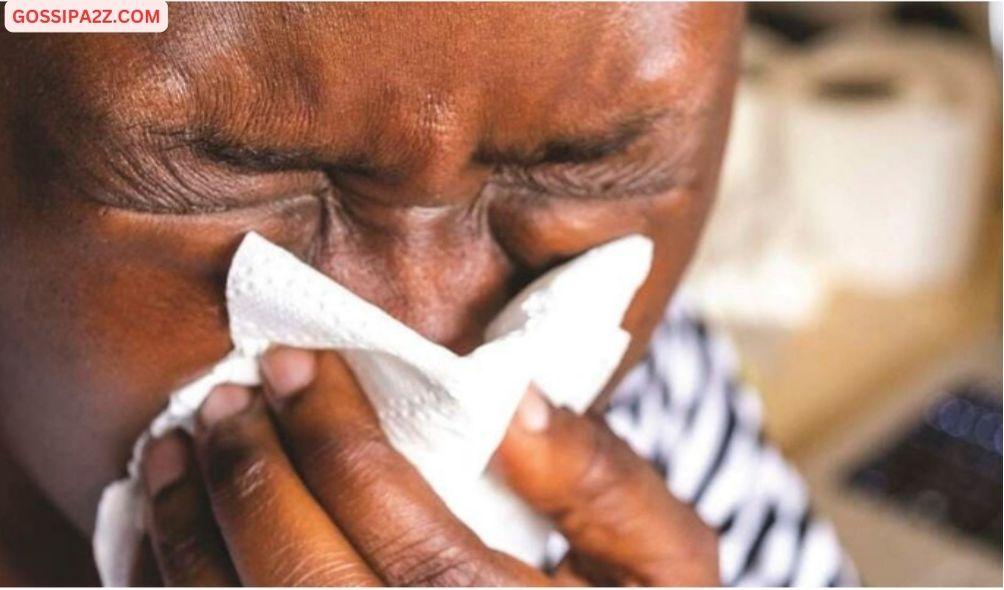Stealthy Menace: Silent Covid Strikes Kenya
Physicians are sounding the alarm about a notable increase in respiratory illnesses nationwide, with certain health professionals linking this trend to a renewed presence of COVID-19.
Data from surveillance of COVID-19-positive samples collected in the lake region indicates the identification of a mutation derived from the Omicron variant, known as JN.1, alongside the presence of H1N1 influenza, commonly referred to as swine flu.
The JN.1 variant, designated as a variant of interest by the World Health Organization, was initially identified in August 2023. Research on this variant indicates that it is primarily found among travelers and in wastewater samples.
“The ongoing proliferation of JN.1 indicates that the variant is perhaps more contagious or possesses a higher ability to evade our immune defenses compared to other variants already in circulation,” explains a study published in Environmental Health Insights earlier this year.
Dr. Shem Otoi, an expert in modeling COVID-19 waves, noted that the current increase isn’t unexpected, as similar patterns have been seen previously.
“When we look at past data from our modeling, the periodicity and seasonality of waves happening now could identify this period as a peak of COVID-19, only that this could be a mild one,” he said.
Dr. Ahmed Kalebi, a freelance pathologist consultant, concurred that there has been a notable increase in respiratory ailments in recent weeks, with numerous individuals experiencing symptoms akin to the flu, such as coughing, sore throat, chest discomfort, and nasal congestion.
“These are signs and symptoms of an ongoing outbreak of viral respiratory infection. However, it is not unusual or unexpected as we are now in the flu season,” said Dr Kalebi.
ALSO READ:
- Inside Job Exposed: Kenyan Prison Wardens Convicted for Orchestrating Daring Terrorist Escape
- Uganda Pulls the Plug: Nationwide Internet Blackout Ordered Days Before Crucial General Election
- African Elections Under the Spotlight as Zambia Turns to Kenya Ahead of 2026 Vote
- “Two Drug Barons in Cabinet?” Kenya Government Fires Back as Ex-Deputy President Sparks Explosive Drug Claims
- Kenyan Court Freezes Use of Private Lawyers by Government, Sparks Nationwide Legal Storm
He clarified that although the Ministry of Health isn’t actively carrying out population-wide testing or surveillance, it’s conceivable that certain Kenyans might be performing self-tests at home with antigen test kits.
However, the numbers may be few, due to the pricey nature of the tests.
“We might never know fully whether there is an upsurge of COVID-19 cases as no population surveillance is going on. In other countries like the USA they can track through surveillance testing on sewage water” said Dr Kalebi.
He requested that the Ministry of Health increase the frequency of data sharing and regularly provide updates to the public supported by evidence, aiming to alleviate concerns and guide public health actions.
He also urged the public to exercise caution, advising individuals experiencing symptoms to avoid contact with others to reduce transmission, maintain regular handwashing, and observe good hygiene practices.
Sultani Matendechero, the deputy director-general for health at the Department of Public Health and Professional Standards, stated that the latest data indicates a continued decrease in COVID-19 infections within the country. However, he emphasized the importance of individuals getting booster shots.
“We still have the Covid-19 vaccine and people should take advantage of it. Covid-19 is still being transmitted,” he said.
Dr. Matendechero stated that following a consistent decrease in infections over a year, the ministry had implemented passive surveillance measures to monitor cases. This decision, he explained, was influenced by continuous low positivity rates, consistently below 5 percent.
Stealthy Menace: Silent Covid Strikes Kenya
